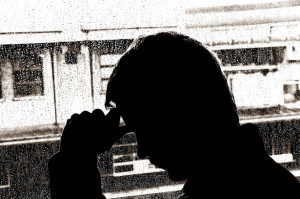 Depression is the deep, deep hole to which no light penetrates. It differentiates from sadness or a “decrease in mood” only by a matter of degrees. That degree of differentiation, however, matters little to people suffering from either condition. They only know that they feel dead inside and life, despite all its joys, holds little allure for them.
Depression is the deep, deep hole to which no light penetrates. It differentiates from sadness or a “decrease in mood” only by a matter of degrees. That degree of differentiation, however, matters little to people suffering from either condition. They only know that they feel dead inside and life, despite all its joys, holds little allure for them.
Telltale symptoms of depression include loss of interest in pleasure or normal activities, sleep disturbances, trouble concentrating, erectile dysfunction, angry outbursts, unexplained physical problems like back pain, anxiety, agitation, or restlessness, or plain old feelings of sadness.
The possible causes are many. It could be genetic. Or it could be from a perfectly understandable cause like the loss of a loved one, physical abuse, financial problems, or, as is the case with many affluent men and women, the realization that money didn’t guarantee any measure of happiness. There are the possible medical causes, too, like substance abuse and major illness. And then there’s the recent discovery that low or borderline-low testosterone levels also contribute to depression.
Last year, Dr. Michael Irwig of the George Washington School of Medicine and Health Sciences in Washington, D.C. probed the medical charts of 200 men who had tested on the lower end of testosterone levels.
A troubling 56% of the low or borderline-low testosterone men proved to suffer from depression and/or depressive tendencies, prompting the doctor to conclude that these men, and men like them, might benefit from testosterone replacement therapy.
Michael Nielsen, MD, of Optimal Health Medical Group in the village of La Jolla, has long suspected this association between low testosterone and mental depression in men.
“The thing is,” explains Dr. Nielsen, “we don’t know if low testosterone is one of the causes of depression or if depression itself causes low testosterone. It’s a chicken and egg situation. Regardless, we’ve found that the effects of testosterone replacement on our male patients is often profound, with the clouds of depression starting to lift a few weeks after beginning treatment and continuing for several months thereafter.”
Clearly, testosterone replacement therapy isn’t only for a decreased libido, low energy, loss of muscle tone, or better physical health. It’s also about helping those men that Henry David Thoreau characterized as leading “quiet lives of desperation.”
If you or someone you know is suffering from depression, sadness, or decrease in mood that hasn’t benefitted from counseling or anti-depressants, consider making an appointment at Optimal Health Medical Group to explore the uplifting effects of testosterone replacement.





